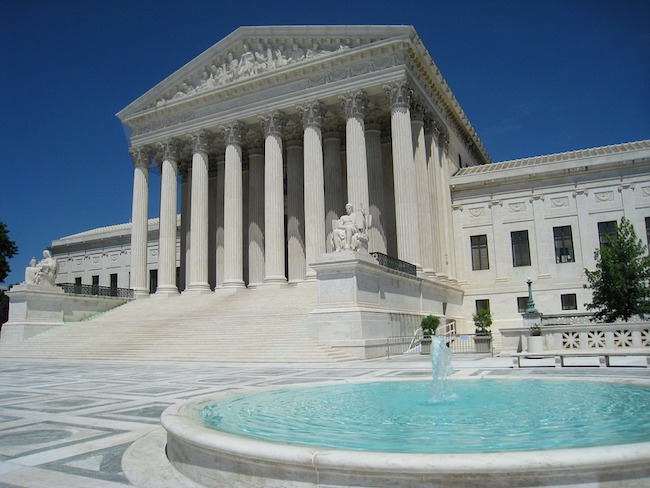Is Same-Sex ‘Marriage’ The Next Item SCOTUS Will Overturn? by Michael L. Brown for Ask Dr Brown
Before the Court’s official decision to overturn Roe v Wade was released, President Biden was already warning that same-sex “marriage” would be next. As he said in May, “It’s not just the brutality of taking away a woman’s right to her body … but it also, if you read the opinion … basically says there’s no such thing as the right to privacy. If that holds … mark my words: They are going to go after the Supreme Court decision on same-sex marriage.” Was he right?
On the one hand, Justice Samuel Alito made clear in his opinion for the majority that the overturning of Roe was different than other cases the Court could one day revisit, since Roe involved “potential life.” As David French explained, “In plain English, Alito argues that abortion is dramatically different from cases involving marriage, because abortion involves harm to a non-consenting party, the “potential life” (to use the language from Roe) of the unborn child. Interracial marriage involves consenting adults. So does gay marriage. A person consents to using contraception. Prior cases protect consensual adult sexual activity.”
On the other hand, in his concurring opinion in the Dobbs case, Justice Clarence Thomas urged the Court to revisit previous rulings on same-sex “marriage” and the use of contraception. He wrote, “In future cases, we should reconsider all of this Court’s substantive due process precedents, including Griswold, Lawrence, and Obergefell . . . .” This is, “Because any substantive due process decision is ‘demonstrably erroneous,’ […] we have a duty to ‘correct the error’ established in those precedents.”
Personally, regardless of whose legal argument is right (in terms of Alito or Thomas), I do hope that the Court revisits the Obergefell ruling. But that is not because of animus I have towards gays and lesbians. It is simply because the Court had no business redefining marriage.
That decision should never have been in the hands of 9 justices, nor is there any way under the sun our Founders would have countenanced such a thing. Could you even imagine how the signers of the Constitution would react to such a scenario?
“Gentlemen, are you comfortable with the idea that, based on the division of powers you have outlined, the Supreme Court could one day redefine marriage so that two men or two women could marry each other?”
The question itself would not have even qualified as a poor joke. It would have been too ridiculous (and, plainly, distasteful) even to draw a smile.
Not only so, but Justice Anthony Kennedy clearly underestimated the degree of backlash that would come against those who did not recognize same-sex “marriage” because of their religious convictions.
As Adam Freeman wrote already on July 1, 2015 (just one week after Obergefell), “During oral argument in Obergefell, Solicitor General Donald B. Verrilli, Jr., conceded that colleges and universities that oppose same-sex marriage could lose their tax-exempt status. ‘It is going to be an issue,’ he acknowledged. Justice Kennedy’s opinion offered little solace on this front: a single paragraph of a 28-page opinion, in which he promises merely that religious individuals and organizations ‘may continue to advocate’ traditional marriage. But the First Amendment guarantees the right to the free exercise of religion, not merely the freedom to espouse a religious view. If traditional churches are required to perform same-sex wedding ceremonies and religious schools are required to countenance same-sex marriage, surely they are not enjoying free religious exercise.”




